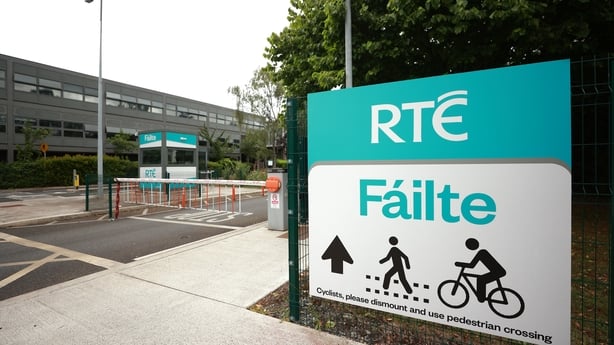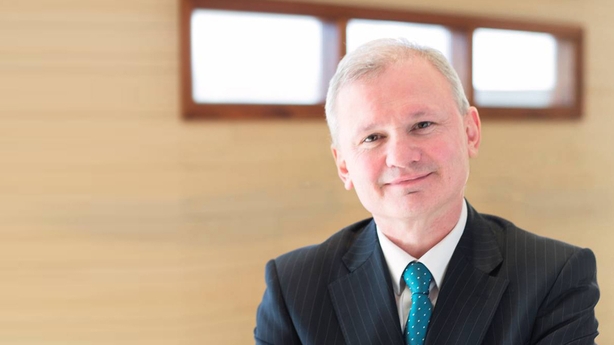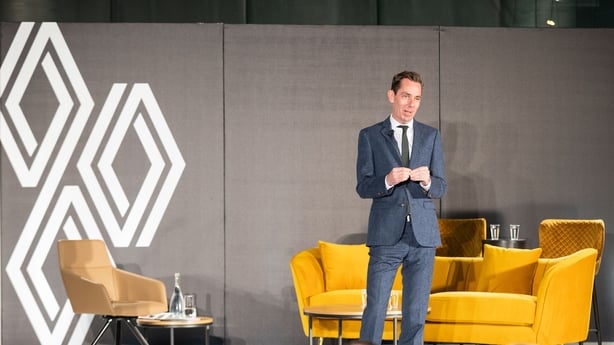Almost a week after the Ryan Tubridy payments controversy publicly emerged, this remains the key question at the centre of the deepening crisis.
And over the coming hours it's likely to be among a flurry of other questions too, as some but not all of RTÉ's most senior officials prepare to make their first public comments on the crisis threatening to engulf the national broadcaster.
After a week of revelations, indignation, denials and finger-pointing, members of RTÉ's board will between now and tomorrow afternoon face the ire of two Oireachtas committees examining the scandal.
The first will be today's meeting with the Oireachtas media committee, followed by tomorrow's meeting with the separate Oireachtas public accounts committee.
And on the agenda will not only be the need for clear answers to ongoing questions that remain central to the controversy, but the credibility of RTÉ too.
As RTÉ prepares to attend the hearings today, five key questions still exist for the national broadcaster's senior management, all of which come back to the basic question of who knew what about the controversy, and when:
Is Dee Forbes really the only person who knew?
In a statement yesterday evening, RTÉ's interim Deputy Director General Adrian Lynch made it clear who he believes the evidence says is responsible for what happened.
In a nine-page statement released at the same time as the separate 21-page Grant Thornton external audit review, Mr Lynch said: "No member of the RTÉ executive board, other than the director general [Dee Forbes], had all the necessary information in order to understand that the publicly declared figures for Ryan Tubridy could have been wrong."
Mr Lynch based his view on the fact Ms Forbes was "directly involved in aspects of the negotiations, as is clearly captured in the Grant Thornton review".
His nine-page statement also referenced a number of examples of this involvement, including:
* a 19 December 2019 meeting with RTÉ's then chief financial officer in which the €75,000 a year additional commercial payment to Mr Tubridy via a commercial advertiser was mooted.
* a 7 May 2020 Microsoft Teams remote meeting "with the agents [for Mr Tubridy], the RTÉ director general and an RTÉ solicitor providing verbal guarantee that RTÉ would underwrite the commercial contract".
* a 21 July 2020 letter "signed by the director general" saying that "contractual arrangements from 2020 to 2025 with Ryan Tubridy were negotiated by the director general and the then chief financial officer supported by the RTÉ solicitor and approved by the director general"... which included "a letter saying there would be no further reduction in fees [payments to Mr Tubridy] during the course of the agreement".
* and that "other than the director general and the commercial director, no member of the executive board had knowledge of the two invoices (9 May 2022 and 6 July 2022), the payment of those invoices through the barter account, or any of the circumstances surrounding those invoices".
But this information appears to contradict Ms Forbes' statement on Monday.

In her own statement, Ms Forbes, who resigned on Monday and has decided not to attend either of the Oireachtas meetings due what she says is ill-health, said the situation is not as simple as what is suggested above.
While accepting that "as director general I led the discussions with the agent for Ryan Tubridy", Ms Forbes said she did so "with other RTÉ senior executives" and that "we explored if a long serving commercial partner might take on a commercial relationship directly with Ryan Tubridy".
Ms Forbes's statement from Monday said a deal was eventually agreed after "numerous internal communications over many months with RTÉ colleagues, including finance and legal colleagues".
And she pointedly signed off on her statement by saying "the board has not treated me with anything approaching the levels of fairness, equity and respect that anyone should expect as an employee, a colleague or a person".
So, was Dee Forbes really the only person who had full knowledge of the payments deal? And, if she was, what questions does that pose for RTÉ 's corporate governance structures?
How much did anyone else know?
It is of course plausible Ms Forbes was the only person with full knowledge and oversight of what happened.
But, for some, it's more than a little convenient that the finger of blame is being pointed solely at the official who has resigned, while those who remain in RTÉ have been given a degree of cover.
Mr Lynch's Tuesday evening statement acknowledged that while RTÉ's Director of Content Jim Jennings, Commercial Director Geraldine O'Leary, Legal Director Paula Mullooly, Human Resources Director Eimear Cusack, knew pieces of the burgeoning payments deal, they didn't have full oversight of what was happening.
On Director of Content Mr Jennings, the statement said he signed off on the payments deal but was "not aware" the broadcaster was "underwriting" any payments that are now under scrutiny - a claim that raises clear questions both Oireachtas committees are likely to examine.

The statement said that while Commercial Director Geraldine O'Leary was aware of aspects of the deal, Ms O'Leary states that "her knowledge" was "limited to the instructions received by her" from Ms Forbes.
It continued that Legal Director Ms Mullooly and Human Resources Director Ms Cusack "were not involved in the negotiation of any aspects of these arrangements" and were "simply aware that negotiations were taking place", adding that Ms Cusack "had no sight of any correspondence relating to the matter".
The statement said Operations and Technology Director Richard Waghorn and Strategy Director Rory Coveney had "no awareness of or responsibility for any aspects of these arrangements".
And, in keeping with the trend, it added that RTÉ's solicitor's office "does not have the authority to set, agree or approve the terms of any contract".
All of this is plausible, and could absolutely be the case.
But, given the only person to be blamed to date is the now departed director general while everyone still working for RTÉ has been fully or partly exonerated the scenario has curled more than a few commentators' eyebrows.
"So only one person knew everything, but lots of people knew only some things ... Good luck RTÉ at the Oireachtas committee," tweeted broadcaster and former Fianna Fáil advisor Mandy Johnston about the explanation.
The report says all of these events predate the recent appointment of the current Director of News and Current Affairs Deirdre McCarthy.
What happens to Ryan Tubridy?
Given the intensity of the focus on Mr Tubridy over the past six days, and the public anger at his two public statements on the controversy to date, Mr Lynch's statement raised an interesting point about the presenter.
Referencing the Grant Thornton external audit review, which was also published yesterday evening, Mr Lynch said "the review makes no finding of wrongdoing on the part of Ryan Tubridy in relation to any payments made by RTÉ".
And he said the review concluded that "Ryan Tubridy was not aware of the credit note provided by RTÉ to the commercial partner".
A similar conclusion was made by the Grant Thornton review in relation to the commercial partner involved in the controversy, with the review making "no finding of wrongdoing" against it.
So, bearing this in mind, where does this leave Mr Tubridy?
Even if TDs - and the general public - ultimately draw the same conclusion as Mr Lynch and Grant Thornton, a scenario that is far from certain in the court of public opinion, other pitfalls remain for the presenter at the centre of the controversy.
It should be noted that Mr Lynch's statement also referenced €120,000 in understated payments from RTÉ to Mr Tubridy between 2017 and 2019, which continue to be examined.
These were not part of the Grant Thornton audit.

Perhaps more importantly for the public, those examining the situation, and RTÉ itself is a further issue.
Under the terms of the payments contract at the centre of the controversy, RTÉ agreed to underwrite the commercial partner's planned payments to Mr Tubridy from 2020 until 2025 - in other words, for two more years.
Page nine of the Grant Thornton audit review said "the underwriting of the guarantee was for the full duration of the contract, being five years" and said this was from "July 2020 to the end date, March 2025".
The audit review said that "to the best of their [RTÉ's] knowledge there is an obligation to pay for every year between the start and the finish dates".
It poses the question: Is Mr Tubridy legally entitled to the continuation of this payment for the next two years, or has he waived his right to it?
And, given the fact Mr Tubridy's decision to step down as host of the Late Late Show - a decision he insists had absolutely nothing to do with the payments crisis - has this contract been re-negotiated, changed or scrapped by RTÉ officials to reflect his now changed work circumstances?
Why were the payments to Ryan Tubridy anonymised?
While Mr Lynch's nine-page Tuesday evening statement gained most attention, the 21-page Grant Thornton audit which was published at the same time is likely to also be a source of questioning during today and tomorrow’s committee meetings.
Page five of the audit review says that "on 9 May 2022 and 6 July 2022, the talent's [Ryan Tubridy] agent raised invoices of €75,000 each with the barter company".
It said "each invoice" was described in the accounts as "consultancy fees", before the audit review noted "the talent agent did not provide consultancy and the talent did not provide consultancy".
The audit review concluded that "consultancy fees did not reflect the substance of the transactions", and that "the evidence is inconclusive as to who came up with the phrase 'consultancy fees'".
The audit review also found that, for reasons unknown, "the two invoices issued by the talent’s agent did not mention the talent’s name" and that barter account statement "describes each expenditure as 'fee agreed by director general'".
Why was this the case, and what possible reasons could there be for such a decision are likely to be among the questions raised at today and tomorrow's Oireachtas committee meetings.
What about the most important people - the public?
There is of course one final question that, that will be on everyone's minds at today's committee:
Does the current official explanation for the Ryan Tubridy payments controversy and who knew about it answer the public's questions?
Whenever a report into a national importance is released, the obvious question on people's lips is will the findings wash with the people who matter, or simply be seen as a whitewash.
The current crisis surrounding RTÉ's senior officials is no different, and nor should it be, given the national broadcaster is paid for by the public and is meant to serve the public's needs, not its own.
The coming 48 hours, which will see some but not all of the key RTÉ officials involved in the controversy appear before two Oireachtas committees intent on revealing exactly what happened, will do much to decide if the public's questions have been fully answered.







